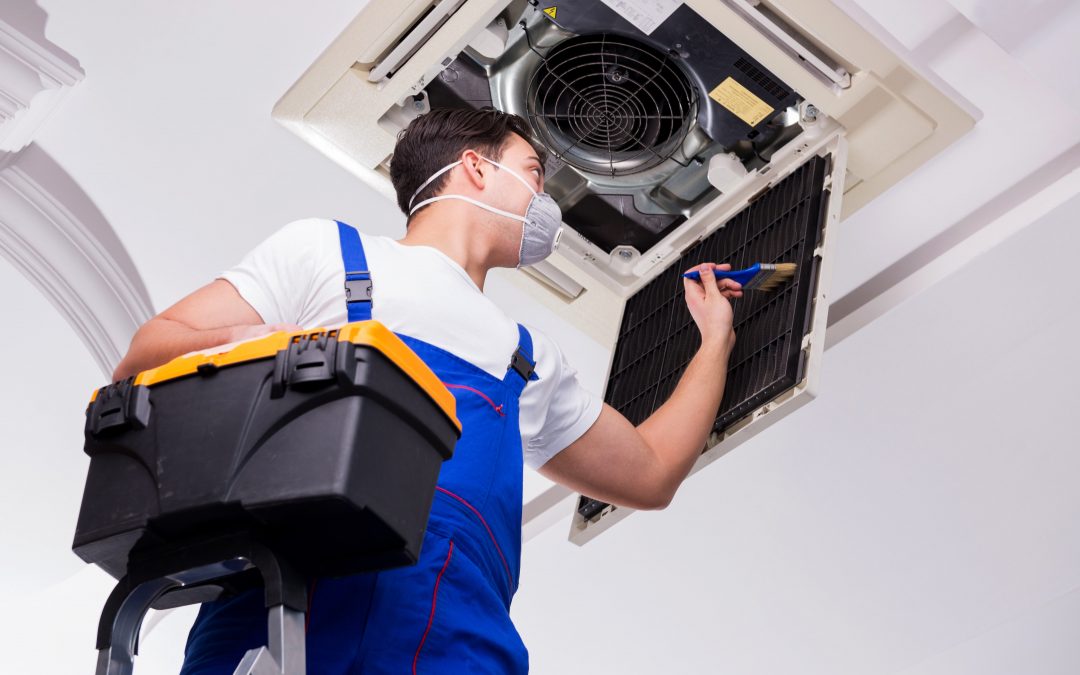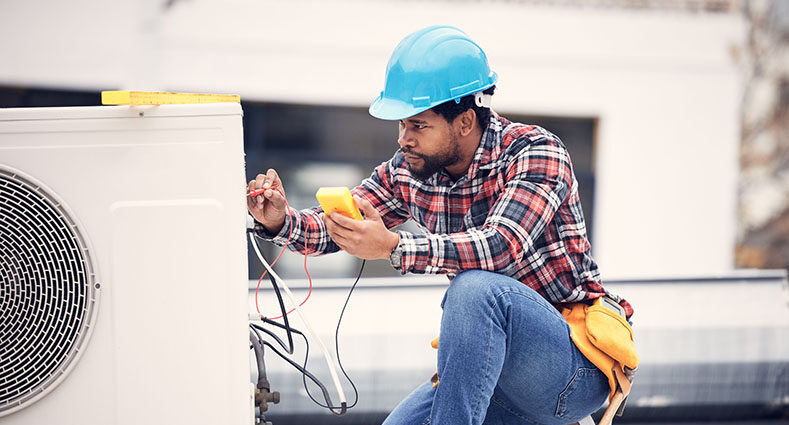The Importance of A/c Understanding: Discovering Reasons of AC Issues for Property Owners
House owners typically overlook the value of understanding their HVAC systems. Acknowledging usual indications of cooling troubles can lead to timely treatments. Problems like inadequate air conditioning or uncommon noises are not just nuisances; they can suggest much deeper issues. By discovering the origin of these issues, house owners can enhance system performance and expand its life expectancy. What are the most prevalent problems that can arise, and how can they be successfully dealt with?
Usual Signs of A/c Troubles
How can homeowners determine concerns with their cooling systems before they rise? Identifying typical indicators of air conditioning troubles is vital for timely upkeep. One prevalent sign is not enough air conditioning; if the a/c device falls short to reduce the indoor temperature, it may indicate underlying concerns. Uncommon sounds, such as grinding or hissing, can likewise suggest mechanical failures or loose components - HVAC company. Furthermore, homeowners ought to watch out for odd odors rising from the device, which may suggest mold growth or electrical troubles. Frequent cycling on and off, referred to as short biking, can show thermostat concerns or cooling agent leaks. Furthermore, an increase in power bills without an equivalent rise in use might point to ineffectiveness. By remaining sharp to these warning indications, house owners can avoid a lot more substantial issues and expensive repair services, ensuring their cooling systems operate efficiently throughout the warmer months

Understanding Cooling Agent Issues
Refrigerant problems can substantially affect the effectiveness of a cooling and heating system. Home owners ought to understand the indicators of low refrigerant levels and the importance of spotting cooling agent leakages. Dealing with these problems immediately can stop additional damage to the system and warranty peak cooling efficiency.
Reduced Cooling Agent Levels
A typical problem that homeowners may encounter with their a/c systems is low refrigerant levels, which can substantially impact the system's effectiveness and efficiency. Cooling agent is important for the cooling process, soaking up warm from indoor air and launching it outside. When degrees drop, the a/c system struggles to cool the space efficiently, bring about raised power intake and potential system stress. Signs and symptoms of reduced refrigerant consist of poor cooling, longer run times, and ice formation on the evaporator coils. House owners might likewise discover uncommon sounds as the compressor works harder to make up for the shortage. It is very important for homeowners to comprehend the significance of preserving appropriate cooling agent degrees to guarantee peak cooling and heating efficiency and long life.
Refrigerant Leaks Detection
Where might a homeowner start when encountered with the possibility of cooling agent leakages in their heating and cooling system? The initial step involves keeping an eye on the system's efficiency. Indicators such as lowered cooling down effectiveness, ice development on coils, or hissing audios might show a cooling agent leak. House owners ought to also look for visible signs of oil residue, typically an obvious indication of a leakage. Utilizing a refrigerant leak detector can give more accurate recognition. If suspicions persist, seeking advice from a qualified heating and cooling service technician is vital, as they have the expertise and tools to situate leaks effectively. Trigger detection and repair work of refrigerant leaks not only enhance system performance yet additionally stop prospective environmental harm, making it an important aspect of cooling and heating maintenance.
Electric Failures and Their Effect
Electric failures can considerably affect a/c systems, particularly with problems like breaker breakdowns and defective electrical wiring. These problems not only interrupt the system's performance but can likewise bring about costly repair work and security hazards. Understanding the implications of such failures is essential for home owners to maintain a reliable and safe a/c atmosphere.
Circuit Breaker Issues
Just how can circuit breaker issues impact the efficiency of a heating and cooling system? Circuit breakers act as critical safety and security gadgets that take care of electrical flow to HVAC systems. If a breaker trips often, it interrupts power supply, resulting in irregular heating or cooling. This can create considerable stress on the system, leading to inefficient procedure and potential damages to elements. Homeowners might see boosted energy expenses because of the a/c system's battle to keep wanted temperatures. In addition, duplicated disruptions from stumbled breakers can shorten the life-span of the AC system, needing expensive repair services or replacements. Normal maintenance of circuit breakers is vital, as it ensures a stable power supply, inevitably enhancing the total effectiveness of the HVAC system.
Faulty Circuitry Outcome
Regularly overlooked, malfunctioning electrical wiring can have dire repercussions for cooling and heating systems. Wiring issues might bring about short circuits, leading to constant breakdowns and boosted repair prices. Furthermore, inappropriate wiring can cause inefficient energy use, leading to higher utility expenses and strain on the system. In extreme instances, malfunctioning circuitry can set off electrical fires, positioning a considerable security threat to property owners. Additionally, these electric failures can damage cooling and heating elements, leading to expensive replacements or substantial fixings. Homeowners need to prioritize routine assessments by qualified specialists to recognize and correct electrical wiring troubles before they intensify. Understanding the effects of faulty electrical wiring can aid assure the durability and safety and security of heating and cooling systems, inevitably securing both the home and its owners.
Clogged Filters and Their Effects
While many home owners might ignore the significance of regular filter upkeep, clogged up filters can lead to substantial effects for cooling and heating systems. When filters come to be obstructed with dirt, dirt, and particles, airflow is restricted. This decrease in air movement requires the system to work harder, resulting in increased energy usage and possibly higher utility costs. Gradually, this strain can create damage on components, leading to premature system failure.
In addition, stopped up filters can endanger interior air top quality. Pollutants and allergens may distribute throughout the home, aggravating respiratory system issues and allergic reactions for residents. Insufficient airflow can create the evaporator coil to ice up, leading hvac person to costly repairs and ineffective air conditioning performance. Frequently changing or cleansing filters is a basic yet crucial maintenance job that can help ensure the long life and performance of heating and cooling systems, ultimately profiting both the property owner's comfort and their finances.

Thermostat Malfunctions Discussed
What takes place when a thermostat breakdowns can significantly impact both convenience and power efficiency in a home (HVAC company). A defective thermostat may fall short to precisely read the temperature level, resulting in overcooling or inadequate cooling. This inconsistency can create discomfort for passengers and lead to greater energy costs, as the heating and cooling system works harder than necessary
Common issues consist of dead batteries, which can provide electronic thermostats faulty, and loosened circuitry that interferes with interaction between the thermostat and the HVAC device. In addition, obsolete or inadequately adjusted thermostats may not react appropriately to temperature modifications, further intensifying power inadequacy.
House owners need to be cautious for indicators of malfunction, such as inconsistent temperature levels or unforeseen power costs. Regular checks and understanding of the thermostat's performance can assist identify issues early, making sure peak efficiency of the heating and cooling system. Attending to thermostat issues immediately is essential for keeping a comfy living environment and managing power usage effectively.
The Function of Normal Maintenance
Normal upkeep plays an important duty in ensuring the durability and performance of heating and cooling systems. Home owners who prioritize regular checks can protect against small issues from intensifying into costly repair work. Normal maintenance generally consists of jobs such as cleaning filters, checking ductwork, and inspecting cooling agent levels. These activities assist maintain suitable air movement and system efficiency, reducing power consumption.
A well-kept HVAC system operates extra effectively, offering constant comfort throughout the home. Normal tune-ups can additionally extend the life expectancy of the device, leading to substantial financial savings with time. Homeowners are encouraged to set up professional examinations at the very least when a year to determine prospective issues early.
On top of that, several suppliers call for routine maintenance to promote warranties, making this technique not just advantageous but commonly needed. On the whole, comprehending the value of routine maintenance empowers homeowners to protect their heating and cooling systems versus unforeseen failings and enhance their financial investment in home comfort.
Often Asked Questions
Just How Can I Improve My A/c's Power Effectiveness?
Improving an air conditioning's energy efficiency entails normal maintenance, cleaning or changing filters, securing ductwork, guaranteeing appropriate insulation, using programmable thermostats, and scheduling expert assessments to determine and fix potential concerns influencing efficiency.
What Is the Life-span of a Normal A/c System?
A regular cooling system has a life expectancy of 15 to 20 years, relying on upkeep, use, Read More Here and ecological factors. Normal upkeep can considerably expand its functional life and enhance overall efficiency.
When Should I Change My A/c System?
An a/c system must normally be changed every 10 to 15 years. Indications for replacement include frequent repairs, increasing power costs, and inadequate cooling, suggesting that an upgrade might be much more affordable and efficient.
Can I Fix Air Conditioner Troubles Myself?
Yes, people can fix air conditioner problems themselves by inspecting filters, making certain power supply, and evaluating for noticeable issues (HVAC contractor). However, complicated issues frequently require expert help for precise diagnosis and risk-free repair, guaranteeing optimal system efficiency
Exactly how Do I Select a Trusted A/c Specialist?

To pick a trusted cooling and heating technician, one need to look for referrals, check on the internet evaluations, verify licenses and insurance coverage, analyze experience, and request comprehensive price quotes to ensure high quality service and fair pricing prior to deciding.
Final thought
To sum up, a strong understanding of cooling and heating systems makes it possible for homeowners to efficiently detect and attend to usual a/c concerns. Acknowledging indicators such as insufficient air conditioning or increasing power costs enables prompt interventions, which can significantly improve system click to find out more performance and longevity. By remaining informed about possible problems like cooling agent leaks, electrical failures, and clogged up filters, house owners can take aggressive procedures to maintain their systems, eventually making sure convenience and advertising a healthier living setting. Routine maintenance remains vital to this undertaking.